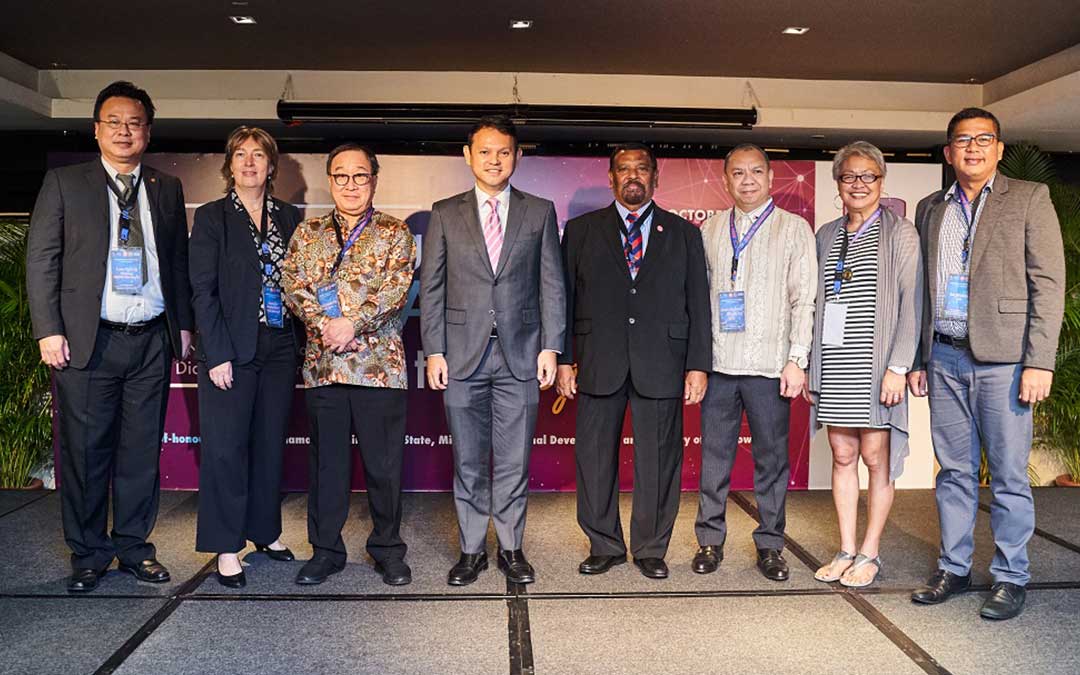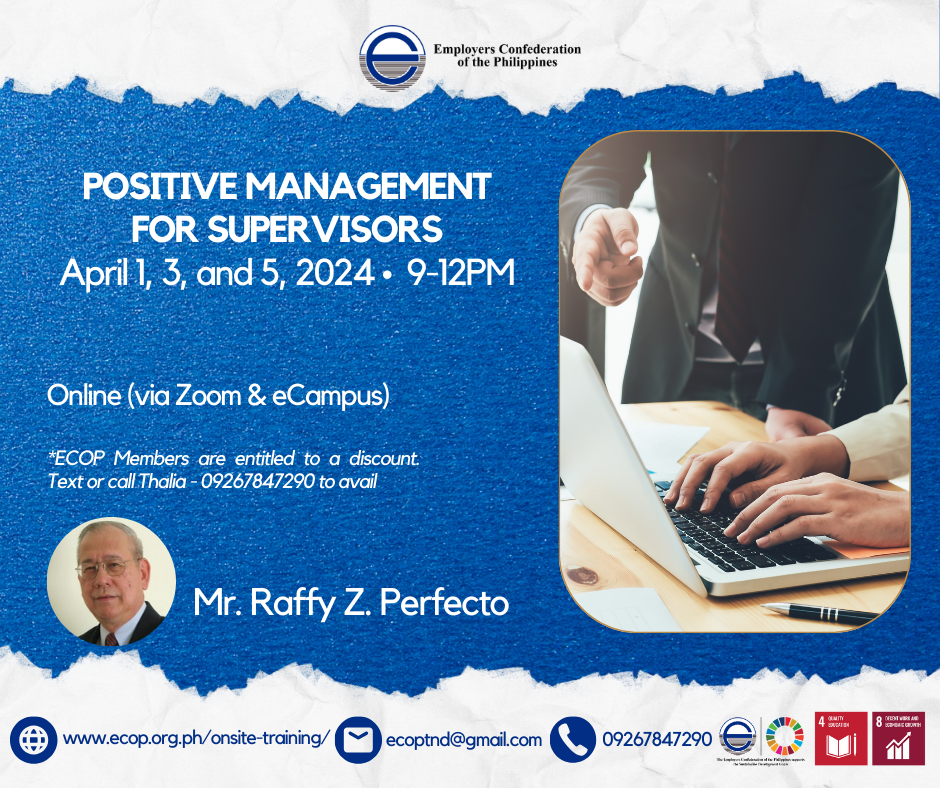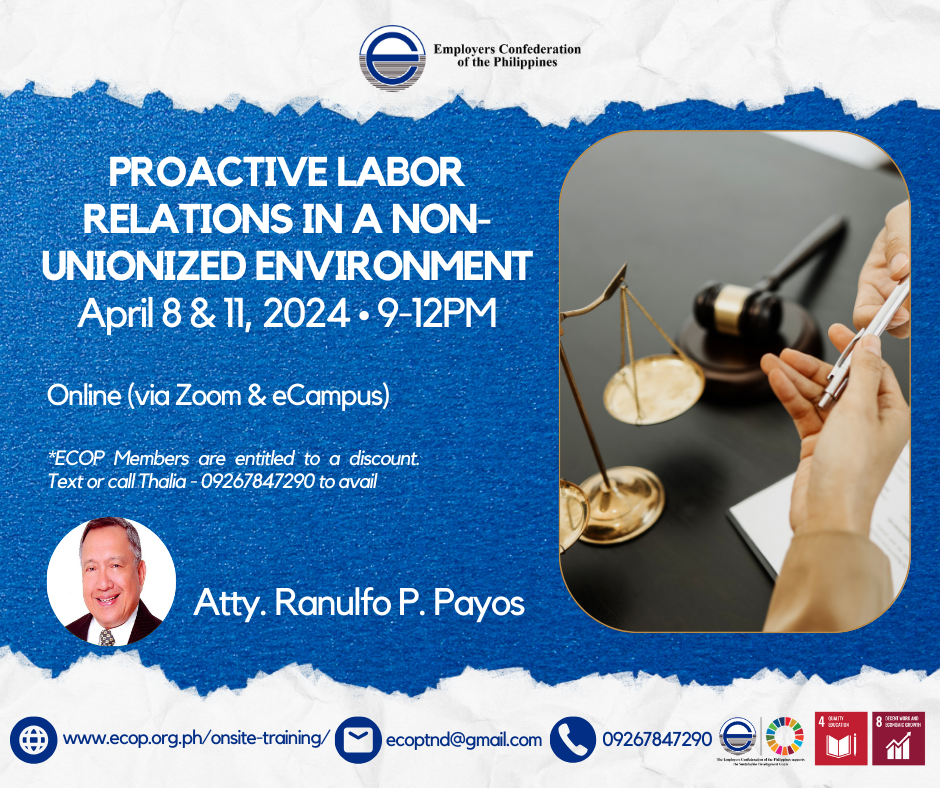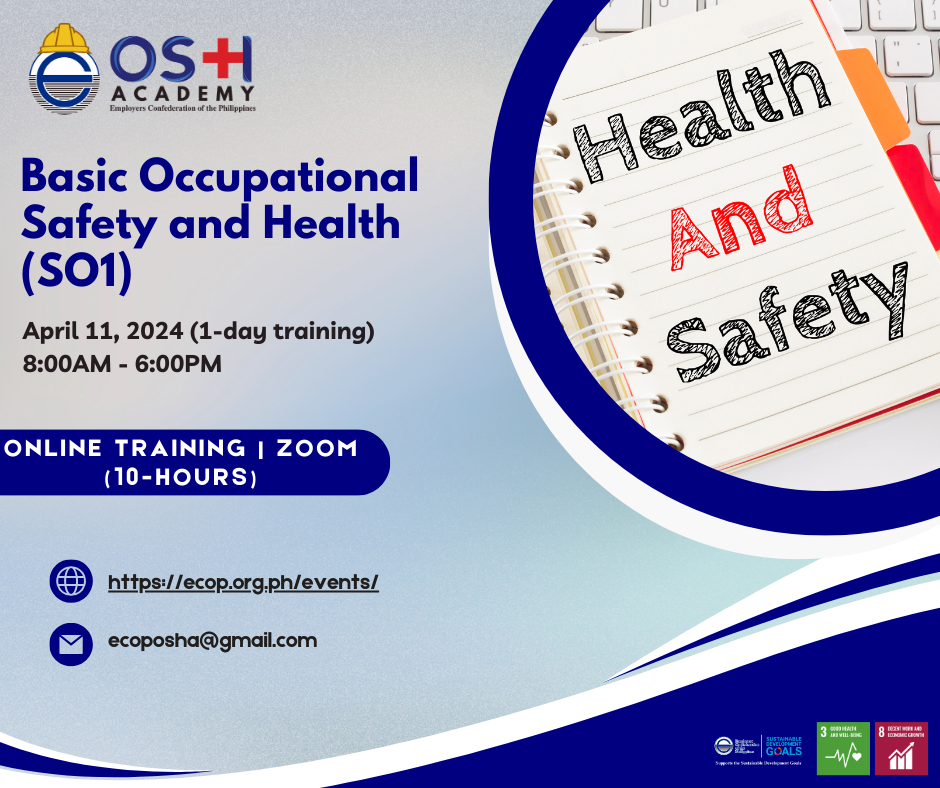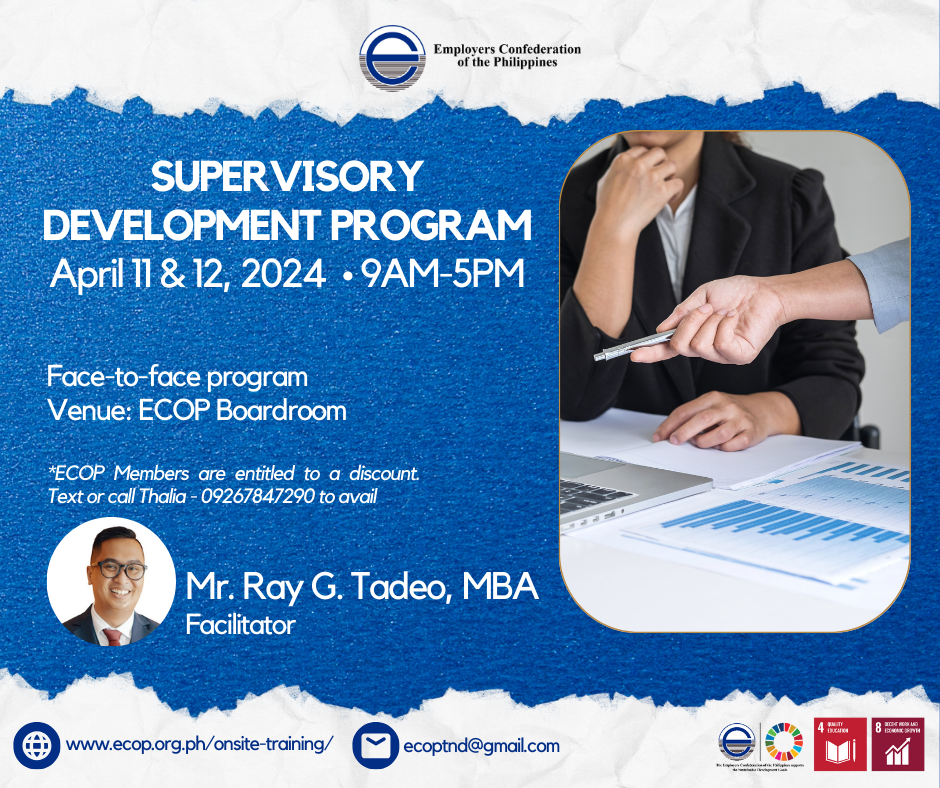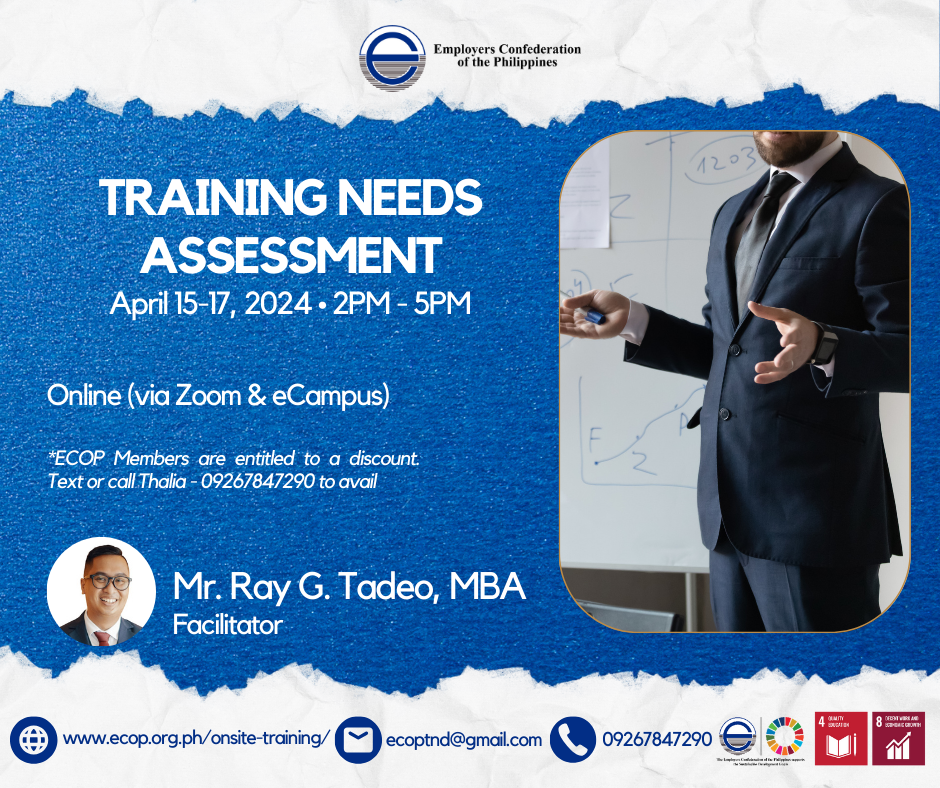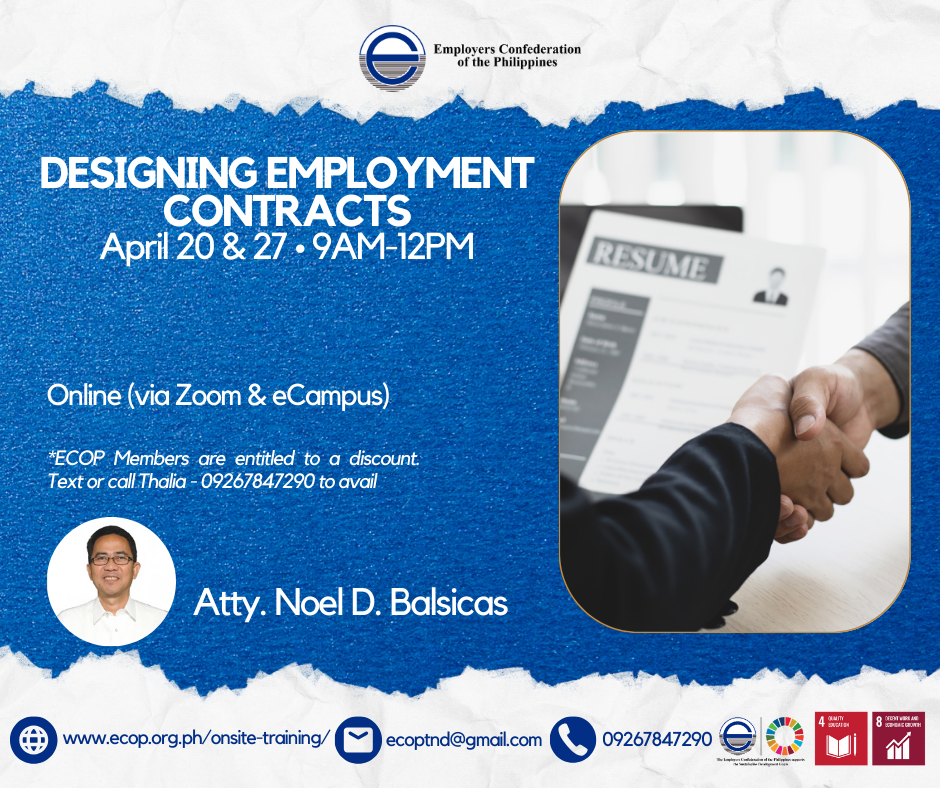ACE Secretary-General Jose Roland Moya (3rd fr right) is shown with the organizers of the Conference in a photo taken following the speech of Singapore Minister of National Development and Manpower Zaky Mohamad (4th fr left)
The business sector has always been at the forefront of any discourse concerning the disruptive industrial revolutions since most of the new technologies that emerged have been adopted by industry to make production easier, ore efficient and less costly. This was emphasized by ECOP Director General Jose Roland Moya, concurrently the Secretary-General of the ASEAN Confederation of Employers (ACE), in his keynote address in one of the panel discussions during the 9th ASEAN Regional Tripartite Social Dialogue Conference (ARTSDC) on 9-10 October 2018 in Singapore.
“As historical evidence shows, industry transitions as spurred by these technological revolutions have never been easy nor equally beneficial,” Moya said. ASEAN employers recognizes that the 4th industrial revolution presents a cornucopia of opportunities and threats which the social partners—government, employers and workers—must prepare for, he added.
The fourth industrial revolution (FIR) or industry 4.0 builds on the advances under the information communication technology (ICT) revolution. This is described as the fusion of “cyber-physical systems” providing entirely new capabilities for people and machines. One author asserts the FIR “represents entirely new ways in which technology becomes embedded within societies and even human bodies,” as exemplified by the emergence of new “technology breakthroughs,” sucah as robotics, artificial intelligence, nanotechnology, biotechnology, internet of things, 3D printing (“additive’ manufacturing) and autonomous vehicles.
The 9th ARTSDC contends that the ten countries belonging to the ASEAN are affected by the FIR. The technology revolution has been shaping and reshaping the twins- the world of business and the world of work.
The tripartite partners in the ASEAN need not be paralyzed by the seemingly endless economic debates on “disruption” and “creative destruction” ushered in by the FIR. “The challenge is how do we move forward given the reality that FIR is upon us and will continue to affect the economy of each country,” the Conference concept paper elaborated.
According to Moya, both business and labor will be significantly affected by the 4th industrial revolution, thus necessitating action from both of them in tandem with government. He identified these key areas for social dialogue in the ASEAN in the context of the 4th industrial revolution as social security net, wages, occupational safety and health, migration, and skills development.
Interested parties may get the full copy of Mr. Moya’s speech upon request at [email protected].

